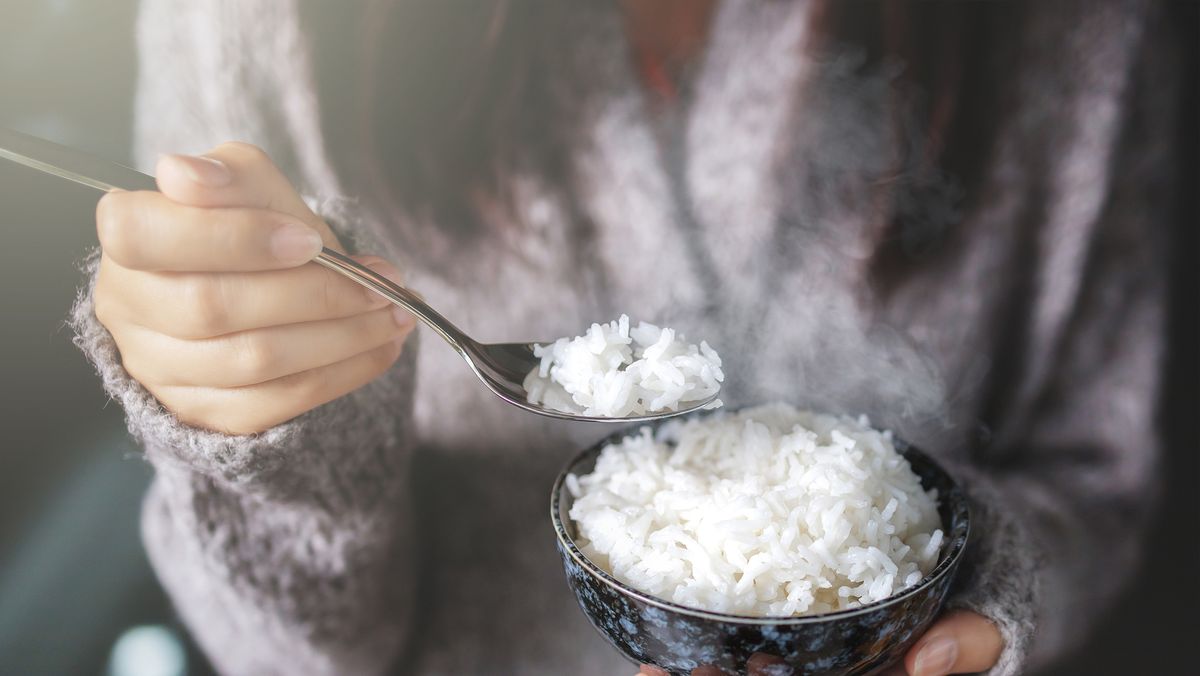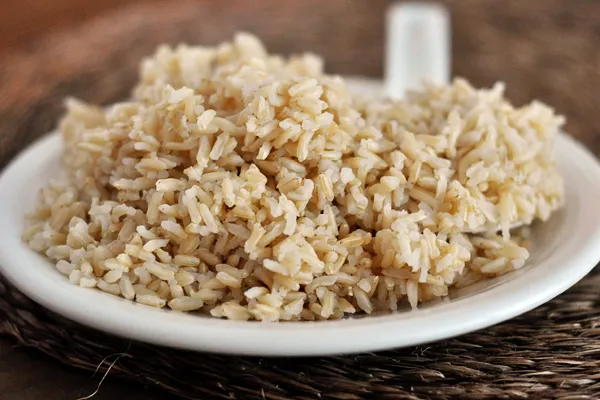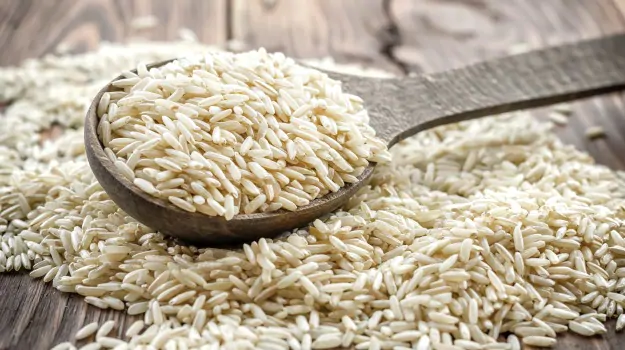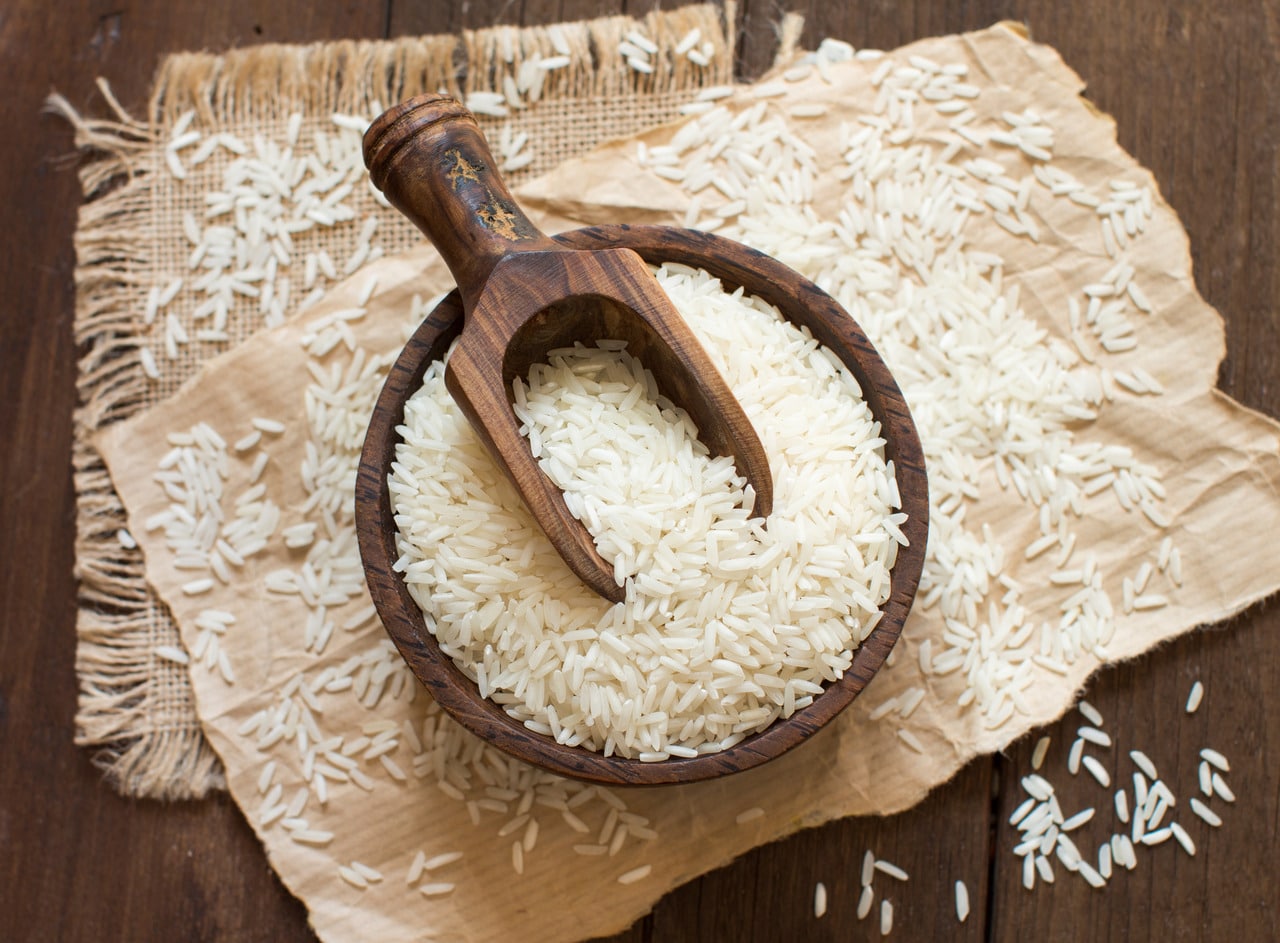Considering adding rice to your bulking meal plan? As a fitness enthusiast, you understand the importance of fueling your body with the right foods. Rice, a pantry staple for many, has long been a go-to choice for bodybuilders looking to support muscle growth. But is rice truly beneficial for your bulking journey? Let’s break down the role rice plays in your muscle-building endeavors.

Contents
- 1 Is Rice Good For Bulking?
- 2 How Much Rice Should I Eat for Bulking?
- 3 Can I Eat Rice Every Day?
- 4 Best Types of Rice for Bulking
- 5 How to Incorporate Rice into a Bulking Diet?
- 6 Frequently Asked Questions
- 6.1 Why should I incorporate rice into my bulking diet?
- 6.2 How should I time my rice consumption around workouts?
- 6.3 Can I mix different types of rice for variety in my bulking diet?
- 6.4 What are some healthier cooking methods for preparing rice?
- 6.5 How can I enhance the flavor of rice while bulking?
Is Rice Good For Bulking?
Yes, rice can be a good choice for bulking for a few reasons:
-
High Carbs: Rice is a good source of carbohydrates, which are the body’s primary source of energy during exercise. When bulking, you need to consume more calories than you burn, and carbs can help you reach that goal.
-
Easily Digestible: Rice is easy to digest, which means your body can absorb the nutrients quickly. This can be helpful for post-workout meals when your muscles need to replenish glycogen stores.
-
Calorie Dense: Rice is a calorie-dense food, meaning it packs a lot of calories into a relatively small serving size. This can be helpful for bulking because it allows you to consume a high number of calories without feeling overly stuffed.
-
Versatility: Rice pairs well with various protein sources like chicken, fish, or beans, making it a versatile base for bulking meals.
How Much Rice Should I Eat for Bulking?
Unfortunately, there’s no one-size-fits-all answer to how much rice you should eat for bulking. The ideal amount depends on several factors, including:
- Your total calorie needs: This depends on your weight, activity level, and goals. To gain muscle, you need to be in a calorie surplus, consuming more calories than you burn.
- Your macronutrient (macro) needs: For bulking, you’ll focus on protein for muscle growth and carbs for energy. Aim for 0.8-1 gram of protein per pound of bodyweight daily. Carbs typically range from 4-7 grams per kilogram of bodyweight.
- The type of rice you eat: White rice has more carbs per serving than brown rice.
- Other sources of carbs in your diet: You might be getting carbs from other sources like fruits, vegetables, or whole grains.

Here’s a general approach to determine your rice intake:
- Calculate your total calorie needs: Use online calculators or consult a nutritionist for an accurate estimate.
- Set your protein intake: Aim for 0.8-1 gram of protein per pound of body weight daily.
- Factor in other dietary carbs: Consider the carbs you consume from fruits, vegetables, and whole grains.
- Allocate remaining calories to carbs: Once you account for protein and other carbs, allocate the remaining calories in your diet to rice and other carb sources.
Here’s an example:
Imagine you’re a 180-pound person aiming for a 300-calorie surplus daily (2,400 calories total). You target 180 grams of protein (0.8 grams per pound).
- Protein: 180 grams x 4 calories/gram = 720 calories
- Let’s say you get 400 calories from other carbs (fruits, vegetables).
- This leaves 1,280 calories remaining for rice and other carb sources.
Brown rice has about 30 grams of carbs per cooked cup. To get a rough idea, you could include 2-3 cups of brown rice throughout the day, keeping in mind this is an estimate and you might need to adjust based on your individual needs and other carb sources.
Can I Eat Rice Every Day?
When it comes to bulking, rice can be a valuable component of your daily meals. It serves as a quick and easy source of carbohydrates that aids in meeting your daily caloric needs. Incorporating rice into your routine can help ensure you consistently consume an adequate amount of macronutrients to support your muscle-building goals.

For those concerned about eating rice daily, rest assured that it can be a healthy part of your diet. However, it’s essential to diversify your carbohydrate sources to guarantee a broader spectrum of essential nutrients. Mixing different carb sources can enhance your overall health and recovery, providing a well-rounded meal plan that supports your body’s needs during the bulking phase.
The key is to strike a balance between consistency in rice consumption for meeting your caloric targets and variety by including other carbohydrate sources in your meals. This approach ensures that you not only fulfill your macronutrient requirements but also benefit from the diverse nutrients offered by a range of whole foods.
By integrating rice into your daily meals alongside other nutrient-rich sources, you can create a diet that supports your bulking goals while promoting overall wellness and recovery.
Best Types of Rice for Bulking
When bulking, opt for rice varieties that are minimally processed and provide ample nutrients and energy for your training needs. Here are some excellent options:
-
Brown Rice: This whole grain is rich in fiber, vitamins, and minerals, including B vitamins, magnesium, and manganese. It provides sustained energy and promotes digestive health.
-
Basmati Rice: Known for its fragrance and long grains, basmati rice has a lower glycemic index compared to some other varieties, helping to stabilize blood sugar levels.
-
Jasmine Rice: Another aromatic rice variety, jasmine rice, offers a good source of carbohydrates for energy. It has a slightly sticky texture, making it ideal for dishes like stir-fries.
-
Wild Rice: Despite its name, wild rice is actually a seed rather than true rice. It’s high in protein, fiber, and various nutrients like manganese, phosphorus, and zinc. Mixing it with other rice varieties can provide a unique flavor and texture.
-
Red Rice: Red rice contains more nutrients than white rice due to its bran and germ layers. It’s rich in antioxidants and provides a nutty flavor, making it a nutritious choice for bulking.

Choose the type of rice that fits your taste preferences and dietary needs, and consider rotating between different varieties to ensure a diverse nutrient intake.
How to Incorporate Rice into a Bulking Diet?
When planning your bulking diet, incorporating rice can be a strategic move to fuel your muscle growth. Here’s how you can effectively include rice in your meal plan:
- Meal Timing: Consume rice around your workout sessions to provide a quick source of energy for training and recovery.
- Portion Control: Keep an eye on your portion sizes to balance your carbohydrate intake with your overall calorie needs.
- Variety: Mix different types of rice like brown rice, Basmati rice, Jasmine rice, and Wild rice to benefit from their unique nutrient profiles.
- Pairing: Pair rice with lean protein sources like chicken, turkey, or tofu to optimize muscle recovery and growth.
- Preparation: Opt for healthier cooking methods such as boiling or steaming rice to retain its nutritional value.
- Flavor: Experiment with herbs, spices, and healthy fats like olive oil to enhance the taste of rice dishes without compromising on nutrition.
Frequently Asked Questions
Why should I incorporate rice into my bulking diet?
Including rice in your bulking diet provides a good source of carbohydrates to fuel your muscles, along with essential nutrients for optimal muscle development. It can be easily paired with lean proteins to support muscle growth effectively.
How should I time my rice consumption around workouts?
For optimal results, consume rice before or after your workouts to replenish energy levels and support muscle recovery. This strategic timing can help maximize the benefits of rice for muscle growth.
Can I mix different types of rice for variety in my bulking diet?
Yes, mixing different types of rice, such as brown, white, jasmine, or basmati, can add variety to your meals while ensuring a diverse nutrient intake. Experimenting with different rice varieties can make your bulking diet more interesting and enjoyable.
What are some healthier cooking methods for preparing rice?
Opt for healthier cooking methods like steaming, boiling, or using a rice cooker to retain the nutritional value of rice. Avoid excessive use of oils or fats while cooking rice to maintain its health benefits in your bulking diet.
How can I enhance the flavor of rice while bulking?
Add flavor to your rice dishes by using herbs, spices, and seasonings like garlic, ginger, turmeric, or cilantro. These additions not only enhance the taste but also offer potential health benefits, making your bulking diet more flavorful and nutritious.

Hello, I’m Ravindra. Over the years, I’ve immersed myself deeply into the world of fitness and health, transforming both my body and mind. Writing has allowed me to share my journey, insights, and expertise with those just starting out and seasoned fitness enthusiasts alike. Beyond just routines and diets, I believe in inspiring others to adopt a holistic approach to well-being.
